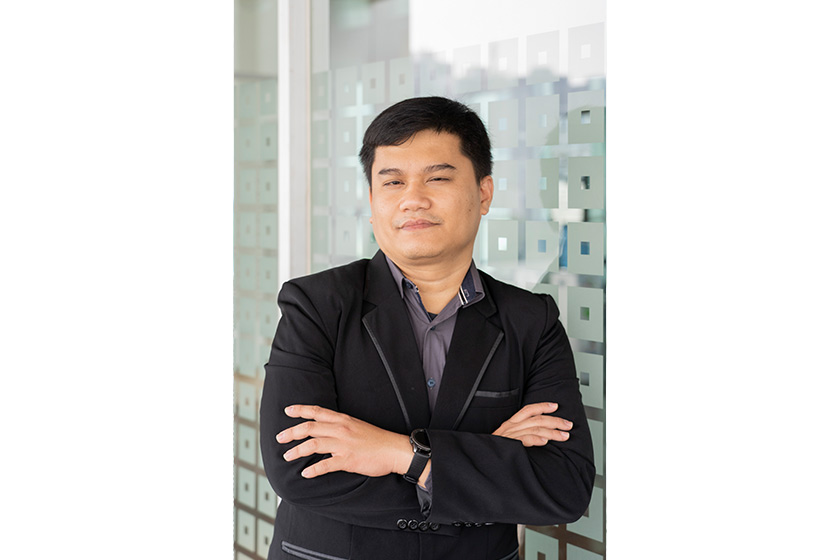11 February 2025
Join our Australian Alumni Grant Info Session!
Are you an Australian alumnus or Australia Awards in Indonesia scholar who want to strengthen your A... Read more
The Australia Awards are prestigious, transformational scholarships and short courses offered to emerging leaders for study, research and professional development in Australia

18 November 2022
 Improving the independence and quality of life of people with vision impairment in Sorong City and Sorong Regency, West Papua, through daily life skills training, orientation and mobility training, and digital literacy training
Improving the independence and quality of life of people with vision impairment in Sorong City and Sorong Regency, West Papua, through daily life skills training, orientation and mobility training, and digital literacy training
Project leader: Fandy Dawenan
Level of education and university: Master, Flinders University
Collaborating Organisations: -
Project Location: Sorong City, West Papua Province, Indonesia
Activity Type: Capacity building, mentoring or coaching
Sector: Education and Training, Education Management, Human Resource Development
Project Rationale:
This project aims to teach visually impaired persons three skills at once, namely daily living skills, orientation and mobility skills, and digital literacy. Daily living skills enable visually impaired persons to achieve their optimum level of independence. They include self-care skills like eating, dressing, bathing, toileting and grooming. They also include other skills such as home management, cleaning, shopping, laundry, money management, medication management, etc. Daily living skills can also help people with vision impairment to live as independently as possible. However, daily living skills alone are not enough to help persons with vision impairment to explore their surroundings, especially outside the home or in public places. They need other skills, namely orientation and mobility. This is a critical area for persons with visual impairments as it is essential for them to learn to move safely and efficiently and as independently as possible through all environments.
Daily living skills and orientation and mobility skills will be more effective and powerful when combined with digital literacy skills, the ability to use digital devices, such as smartphones and computers. In the modern era where the development of science is very rapid, technology can help persons with vision impairment to do numerous things that were previously almost impossible to do, such as write documents, browse the internet and send and receive emails, use social media, navigate the environment using Google Maps and use online public transportation. Screen Reading software and special talking and Braille devices allow persons with vision impairment to use computers, cell phones and other electronic devices independently. Similarly, people with low vision can use screen magnification software and devices that will allow them to see letters, pictures and other objects without having to struggle or strain their remaining vision or depend on others. This technology commonly known as assistive or adaptive technology is continually evolving, and has removed many access barriers for people with vision impairment. Technology has become “a substitute for eyes” for those who have lost their sight.
Persons with vision impairment in West Papua, especially in Sorong City and Sorong District, still have very minimal and limited abilities in terms of daily living skills, orientation and mobility skills, and digital literacy. This is due to the lack of opportunities for them to learn these skills, either in the family, school, and community. In the family, they are restricted from doing various things because their parents or siblings are worried for their safety. Therefore, almost all their needs are provided for or assisted by their family members. This excessive worry causes the persons with vision impairment to be less able to move independently and tend to depend on others for various things, such as preparing food, washing clothes, and doing other daily routines.
In terms of traveling, the persons with vision impairment are also still dependent on the help of family members or close relatives to take them somewhere. They do not yet have the courage to use public transportation. This is because they do not yet have confidence and adequate orientation and mobility skills, such as using a cane and some other orientation and mobility techniques to explore the environment.
The use of assistive devices, such as smartphones, computers and accessibility software in them, may be one of the solutions to support the independence of persons with vision impairment in Sorong City and Sorong District. However, they have limited or no opportunity to learn how to use and own these assistive tools. This is because the prices of these devices are relatively expensive and most of them come from poor economic backgrounds, and there is a lack of people who can teach them to use these devices. Therefore, it is expected that through this project the persons with vision impairment in Sorong City and Sorong District can learn the skills described above and get assistive devices, such as canes and smartphones. Because knowledge alone is not enough without being supported by tools that can be used to implement the knowledge, so that the results achieved are more optimal and successful.
Project Beneficiaries:
This project will train 20 people with vision impairment living in Sorong City and Sorong Regency.
Priority Development Area:
Health Security
Link with Australian organisation:
Not available
Share this project on:
 Related Project Profiles
Related Project Profiles
This website uses cookies to improve your website experience. We may also use cookies to analyse website data so that we can improve our online services. To find out more visit our privacy policy.
